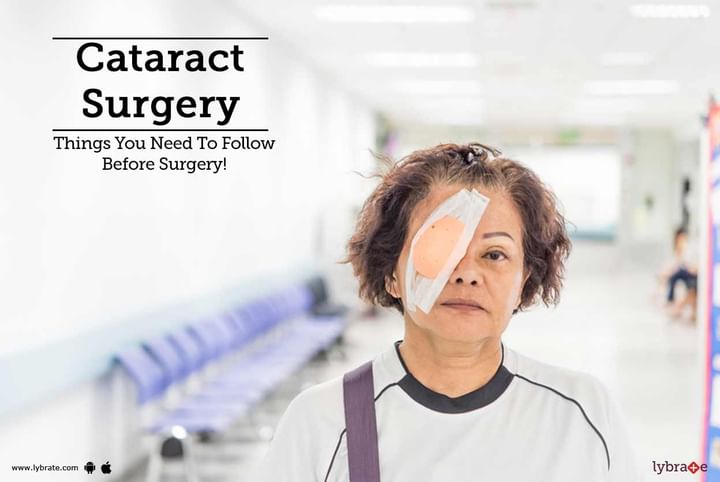Cataract Surgery - Things You Need To Follow Before Surgery!
A cataract surgery is performed to remove the lens of the eye and replace it with an artificial one. The surgery is undertaken to cure cataract, which makes the lens of the eyes cloudy, making it difficult to see. The surgery is not considered to be a major one and is performed on an outpatient basis, meaning that the patient can go home the very same day without having to spend the night at the hospital. The procedure is very normal and is undertaken when cataract starts to affect the day-to-day life of the patient.
Know the risks involved
Complications after a cataract surgery are rare but not unheard of. The surgery in itself is a simple one but there is a risk of complications if the patient is suffering from another eye disease or is suffering from an underlying health condition. As a precaution, always get yourself tested for other eye diseases before deciding to go for the surgery. Some of the other risks involved include:
- Bleeding
- Infection
- Swelling
- Retinal Detachment
- Vision loss
What to do before cataract surgery?
Before the surgery takes place, your ophthalmologist will ask you to do certain preparations so that the surgery goes as planned. Make sure that you follow his/her advice diligently for a successful surgery and recovery. Some of these things include:
- Undergo certain tests - Before cataract surgery, the doctor will ask you to take certain tests to including an ultrasound of the eye to measure its shape and size. This information will help the doctor to select the right lens for you.
- Avoid certain medicines - Your doctor might also ask you to stop taking certain medicines a couple of days before the surgery. Medicines that might cause bleeding during surgery are avoided.
- No eating before surgery - The doctor might instruct you to not eat or drink fluids at least 12 hours before the surgery.
- Eye drops - You are also asked to apply eye drops in order to reduce the risk of infection to the eye after the surgery.



+1.svg)
